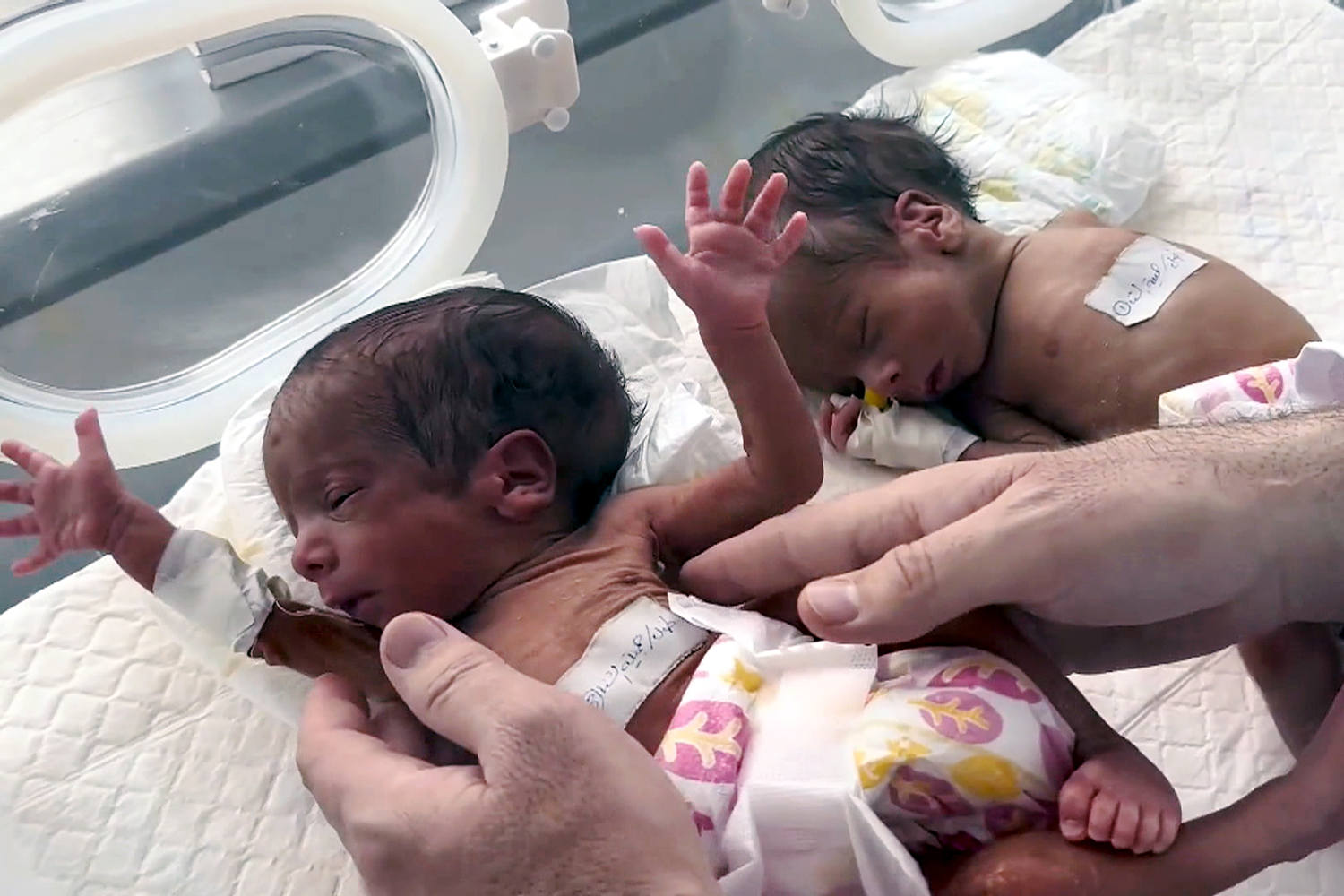Gaza hospital reports rise in stillbirths and neonatal deaths

Zaqout said she visited the Emirati Hospital in Rafah during her pregnancy. Dr. Haider Abu Sneima, the hospital’s director, told NBC News last month that various factors were affecting maternal health there.
The little food that is available lacks “proteins, vitamins or vegetables, and if you find them, prices are out of the imaginary,” he said. “A pregnant woman or her family can’t obtain them.”
On top of that, Abu Sneima added, the psychological pressures of the war have “a very negative effect on the mother and her baby.”
In recent weeks, he said, there appeared to be a rise in babies being born premature and generally “small in size.”
“We don’t see big children like we used to give birth to in the past. We don’t see these children anymore,” he said.
Dominic Allen, the designated representative for Palestinian territories with the United Nations Population Fund (UNFPA), said that when he visited Gaza last month, doctors at the Emirati Hospital similarly told him that they were no longer seeing “normal-sized” babies.
They reported “more complications around births caused, they’re telling us, by malnutrition and dehydration and from stress,” Allen said. “What they are seeing is an increased number of stillborn babies and neonatal deaths.”
NBC News could not independently verify those reported trends, and no data was available to confirm them. The Israel Defense Forces did not respond to a request for comment.
The World Health Organization has repeatedly said that malnourishment is rising in Gaza.
“Different doctors particularly in the maternity hospitals are reporting that they’re seeing a big rise in children born [with] low birth weight and just not surviving the neonatal period because they are born too small,” WHO spokeswoman Dr. Margaret Harris said Tuesday at a briefing.
The reports come amid mounting concerns about looming famine in Gaza. Already, Palestinian health authorities reported that at least 27 people, including children, have died from severe malnutrition in the enclave. Israel faces growing pressure from the international community to expedite the delivery of aid into Gaza, which it has been accused of restricting.
Israeli authorities have denied hindering the flow of aid into Gaza and have instead blamed humanitarian groups for the issue.
According to the UNFPA, around 155,000 pregnant women and new mothers in Gaza are “struggling to survive.”
“They are suffering from hunger and the diseases that stalk it, amid life-threatening shortages of food, water and medical care,” the agency wrote on its website.
“For the 5,500 women who will give birth in the coming month, accessing adequate health care is an unimaginable challenge. Only three maternity hospitals remain in the Gaza Strip, and they are overwhelmed with patients,” it said, adding: “Doctors and midwives — desperate for medicines and supplies — are struggling to provide adequate care to newborns.”
Dr. Angela Bianco, director of maternal fetal medicine and a professor of obstetrics, gynecology and reproductive science at the Icahn School of Medicine at Mount Sinai in New York, said she wasn’t surprised by the Rafah doctors’ reports, though limited data makes it difficult to draw conclusions.
“When you look at the world’s medical literature and you look at the impact of stress on pregnancy outcomes, there is data that definitely supports that there’s an increased rate of adverse pregnancy outcomes and specifically stillbirth and preterm birth in the face of maternal stress — specifically more so extreme stress.”
Zaqout said that after losing her husband, her baby girl was “my last hope.”
“For real. I was dreaming about her,” she said.
Zaqout’s husband is one of the more than 32,600 people killed in Gaza in the nearly six months since Israel launched its offensive after Hamas’ Oct. 7 attacks. Roughly 1,200 people were killed in Israel that day, and some 260 were taken hostage. At least 252 IDF soldiers have been killed since Israel’s ground offensive began.
Speaking with NBC News in Gaza on March 23, UNICEF’s global spokesperson, James Elder, said a cease-fire is necessary to address the spiraling humanitarian crisis in the enclave.
“People are exhausted, the coping mechanisms have been smashed,” he said. “The health system is teetering on collapse, and now we have imminent famine.”
Zaqout does not know exactly why her baby was stillborn, but she said she believes it was a consequence of Israel’s offensive in Gaza.
After the delivery, she said, “I kept on saying goodbye.”
“I told her, ‘Go to your father, a bird in paradise. I will wait for you and be patient, and we’ll back to what we were,’” she said. “We were a family on Earth. We will be in the afterlife.”




